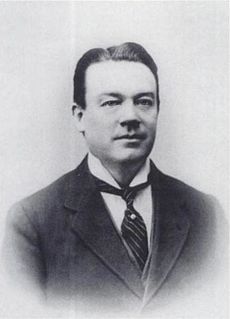A Quote by George Orwell
Never use a metaphor, simile, or other figure of speech which you are used to seeing in print. Never use a long word where a short one will do. If it is possible to cut a word out always cut it out. Never use the passive voice where you can use the active. Never use a foreign phrase a scientific word or a jargon word if you can think of an everyday English equivalent. Break any of these rules sooner than say anything outright barbarous.
Related Quotes
When philosophers use a word--"knowledge," "being," "object," "I," "proposition," "name"--and try to grasp the essence of the thing, one must always ask oneself: is the word ever actually used in this way in the language-game which is its original home?--What we do is to bring words back from their metaphysical to their everyday use.
When I was quite young I fondly imagined that all foreign languages were codes for English. I thought that "hat," say, was the real and actual name of the thing, but that people in other countries, who obstinately persisted in speaking the code of their forefathers, might use the word "ibu," say, to designate not merely the concept hat, but the English word "hat." I knew only one foreign word, "oui," and since it had three letters as did the word for which it was a code, it seemed, touchingly enough, to confirm my theory.
There are some simple maxims which I think might be commended to writers of expository prose. First: never use a long word if a short word will do. So, if you want to make a statement with a great many qualifications, put some of the qualifications in separate sentences. Third: do not let the beginning of your sentence lead the reader to an expectation which is contradicted by the end.
The language in New Mexico is very different. At first when you hear the speech here, you don't really know what to do with it, but then I just went with it, because as a writer as well as a translator I do believe that translated words are not different names for the same thing. They're different names for different things. I tried to stay as true as I could, so I used Ruben Cobos' dictionary of Southwestern Spanish, and when I went into Spanish I never assumed the word I would use would be the word a nuevomexicano would use.
I have a few minor rules for myself but I break them all the time. For example, when translating from Romance languages to English, there is often a choice between a Latinate cognate and a Germanic equivalent. An easy example would be the Portuguese escuridão: English offers both obscurity and dark or darkness, and some translators will tell you the Latinate word is generally reserved for poetic and figurative expressions, while the Germanic word is used for colloquial and idiomatic use.




































